Camping is a popular outdoor activity that involves spending time in nature and sleeping overnight in a tent or other temporary shelter. It is an excellent way to escape the hustle and bustle of city life and connect with the natural world. Camping offers a unique opportunity to explore the wilderness, enjoy outdoor activities, and create lasting memories with friends and family.
In this beginner's guide, we will provide you with valuable tips and insights to make your camping experience safe, enjoyable, and memorable.
Types of Essential Camping Gear and Equipment
Having the right camping gear is crucial to ensure your comfort and safety in the wilderness. Here are some essential items you should pack for your camping trip:
Tents
A reliable tent that suits the weather conditions and terrain of your camping location is essential. Look for a tent that is easy to set up, spacious enough for your needs, and made of durable materials to withstand the elements.
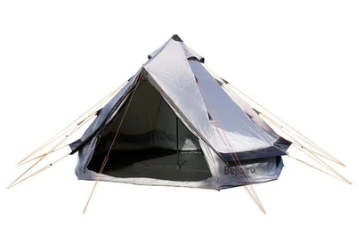
Sleeping Bag And Pad
Choose a sleeping bag that provides sufficient warmth and comfort for the expected weather conditions. Consider the temperature rating, insulation type, and size when selecting a sleeping bag. It's also a good idea to bring a sleeping pad or mattress for added comfort.
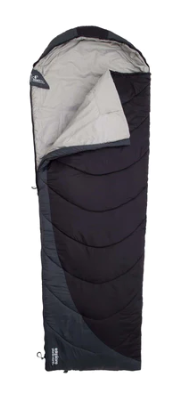
Camp Stove
A camping stove is crucial for cooking meals and boiling water in the wilderness. Look for a portable and reliable camping stove that suits your cooking needs and follows the campsite regulations regarding fire and cooking. Don't forget to bring fuel for your stove.
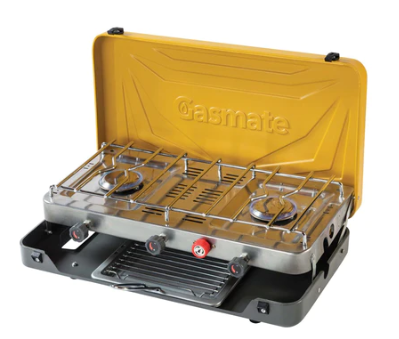
Lighting
A headlamp, flashlight, or lantern are essential for navigating in the dark and illuminating your campsite. Make sure to bring extra batteries or a backup light source to ensure you have enough light throughout your camping trip.
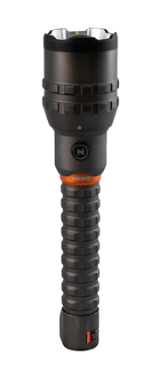
First Aid Kit
A well-stocked first aid kit is crucial for any camping trip. Include items such as bandages, antiseptic wipes, pain relievers, insect repellent, sunscreen, and any personal medications you may need.
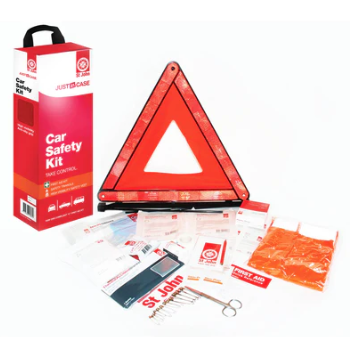
Water Bottles Or Hydration System
Clean drinking water is essential for any camping trip. Consider bringing a water filtration system, such as a water filter or water purification tablets, to ensure you have a safe and reliable source of drinking water.
Backpack
A backpack is a crucial piece of camping gear and equipment that is essential for any outdoor enthusiast. It serves as a portable storage solution, allowing campers to carry all their essential items on their back as they navigate through various terrains and explore the wilderness.
Multi-purpose Tool Or Knife
A multi-purpose tool, such as a Swiss Army knife or a multi-tool, can come in handy for various tasks, such as cutting, opening cans, repairing gear, and more.
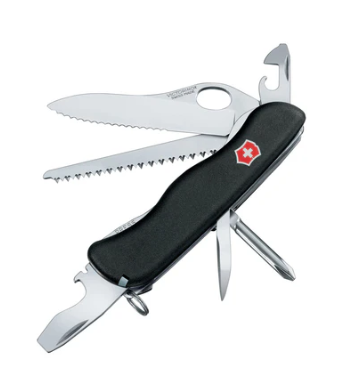
Personal Hygiene Items
Don't forget to pack personal items such as toiletries, sunscreen, sunglasses, and any other items you may need for your comfort and hygiene during your camping trip.
Sun Protection
When spending time outdoors, especially in sunny and exposed environments such as campsites, trails, and beaches, protecting yourself from the harmful effects of the sun's rays is crucial to ensure a safe and enjoyable camping experience.
Clothing
Pack appropriate clothing for the weather conditions at your camping location, including waterproof and insulated layers, extra socks, and a hat for sun protection. Don't forget to bring sturdy hiking boots or shoes for outdoor activities.
Hiking Boots And Sturdy Shoes
Hiking boots and sturdy shoes provide protection, support, comfort, traction, and durability for your feet, keeping you safe and comfortable during your outdoor adventures. It's crucial to invest in a high-quality pair that fits well and suits the specific terrain and weather conditions of your camping destination to ensure a safe and enjoyable camping experience.
Emergency Whistle And Signaling Device
An emergency whistle and signaling device are crucial pieces of camping gear and equipment that should be considered essential for any outdoor adventure. They provide a loud, attention-grabbing sound that can help you communicate for assistance, signal to your camping group, or alert search and rescue teams in case of an emergency. It's compact, lightweight, and easy to attach to your gear, making it a practical and potentially life-saving addition to your camping essentials.
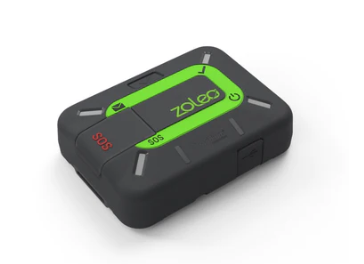
Some Steps To Consider When Planning And Preparing For A Wild Camping Trip
Planning and preparing for a wild camping trip involves several important steps to ensure a safe and enjoyable experience in the wilderness. Here are some key steps to consider:
- Research the area where you plan to camp, including the weather forecast, trail conditions, and any necessary permits or regulations.
- Choose the right campsite. Consider the type of camping you want to do (backpacking, car camping, etc,), the distance to water sources, and the type of terrain.
- Create an itinerary. Plan out your trip, including your route, campsite locations, and estimated travel times.
- Gather the necessary gear and equipment. Make a checklist of essential items such as a tent, sleeping bag, stove, and first-aid kit, and ensure that you all have the necessary gear and equipment.
- Pack food and water. Plan your meals and pack enough food and water to last the duration of your trip.
- Learn wilderness survival skills. Brush up basic wilderness survival skills such as how to make a fire, purify water, and navigate using a map and compass.
- Bring a means of communication such as a satellite phone or a personal locator beacon in case of emergency.
Safety Tips And Considerations While Camping In The Wildness
When camping in the wilderness, it's crucial to prioritise safety to ensure a safe and enjoyable experience. Here are some important safety tips and considerations to keep in mind:
- Know the weather forecast: Check the weather forecast and be prepared for any changes in weather. Bring warm and waterproof clothing, and have a plan in case of severe weather.
- Bring a map and compass: A map and compass are essential for navigation in the wilderness.

- Bring a signaling device: Bring a whistle or signaling device such as a mirror in case of emergency.
- Be aware of your surroundings: Pay attention to your surroundings and be aware of potential hazards such as steep cliffs, fast-moving water, and poisonous plants.
- Learn wilderness survival skills: Brush up on basic wilderness survival skills such as how to make a fire, purify water, and navigate using a map and compass.
- Be cautious of wild animals: Be aware of the animals that live in the area and take appropriate precautions to avoid dangerous encounters.
- Choose the right campsite: Choose a campsite that is safe and appropriate for your group, and follow Leave No Trace principles when camping.
- Bring a first aid kit: Bring a basic first aid kit and know how to use it.
- Bring a means of communication: Bring a means of communication such as a satellite phone or a personal locator beacon in case of emergency.
- Stay on designated trails: Stick to designated trails to avoid getting lost or causing damage to the wilderness.
Basic Wilderness Survival Skills That You Should Know
Knowing basic wilderness survival skills can be critical for staying safe and surviving in challenging outdoor situations. Here are some essential wilderness survival skills that you should know:
- Shelter building: Learn how to construct simple shelters using natural materials like branches, leaves, and rocks. A shelter can provide protection from the elements and help you stay warm and dry.
- Fire starting: Knowing how to start a fire can provide warmth, light, and a means for cooking food. Practice different fire-starting techniques such as using matches, lighters, fire starters, or friction methods like bow drill or hand drill.
- Navigation: Learn how to use a compass, read maps, and navigate using landmarks and natural features. Knowing how to find your way in the wilderness can prevent you from getting lost.
- Water procurement: Finding and purifying water is crucial for survival. Learn how to locate water sources, collect and filter water, and purify it through boiling, chemical treatment, or using water filters.
- Food foraging: Familiarise yourself with edible plants, mushrooms, and insects in the area you are camping in. Learn how to identify and safely consume them for food if necessary. Hunting and fishing skills can also be valuable for procuring food in the wilderness.
- First aid: Knowing basic first aid skills can help you respond to injuries or medical emergencies in the wilderness. Learn how to administer CPR, treat wounds, fractures, and other common outdoor injuries.
- Signaling for help: Learn how to use signalling devices such as whistles, mirrors, or signal fires to attract attention and call for help in case of an emergency.
- Weather awareness: Be aware of weather patterns and how to prepare for extreme weather conditions such as thunderstorms, snowstorms, or heatwaves. Knowing how to protect yourself from the elements is crucial for survival.
- Basic camping skills: Learn how to set up a tent, use camping gear, and manage campfires safely. Knowing how to properly use camping equipment can make your outdoor experience more comfortable and safe.
- Mental resilience: Surviving in the wilderness can be mentally challenging. Learn how to stay calm, manage stress, and make rational decisions in difficult situations.
Remember that prevention is always the best approach to wilderness survival. Prioritise safety, be prepared with the right equipment and knowledge, and always let someone know your itinerary and expected return time when venturing into the wilderness.
Wrap It Up
Exploring the outdoors through camping in the wild can be an exciting adventure, but it requires careful planning, preparation, and knowledge of basic wilderness survival skills. From choosing the right camping gear to setting up a campsite, understanding safety considerations, and learning essential skills like shelter building, fire starting, navigation, water procurement, and first aid, being well-prepared is crucial for a successful and safe camping experience.
So, before embarking on your camping trip, make sure you do your research, pack accordingly, and prioritise safety at all times. Also, make sure you check out the RV Online shop for quality camping products and equipment that are perfect for your next camping trip. Happy camping!

